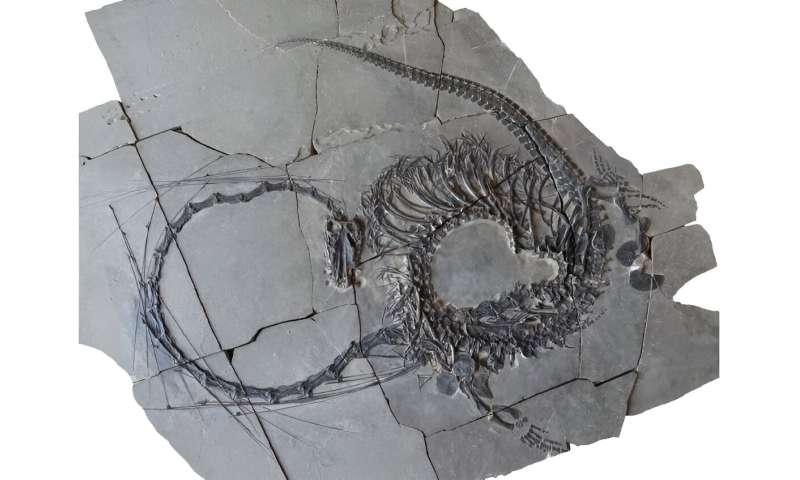Best of Last Week—plant can reduce food insecurity, robot to care for elderly, 'Chinese dragon' fossil identified

It was a good week for biology research as a team of botanists at Pennsylvania State University discovered that a common plant could help reduce food insecurity. Called Carolina azolla, the plant is able to double its biomass in just two days and also captures nitrogen from the air. A team of medical researchers and chemists at the University of California–Santa Barbara developed molecules that could be used for a new class of antibiotics to overcome drug-resistant bacteria.
In technology news, a team of computer engineers at the University of Science and Technology Beijing developed an architecture for use in sub-picowatt logic computing based on self-biased molybdenum disulfide transistors. And robotics engineers at Universidad Carlos III and robot maker Robotnik developed a novel elder care robot that could provide personal assistance for those needing care, thereby enhancing seniors' quality of life. Also, a combined team of roboticists from Universidad Complutense de Madrid and Universidad Carlos III de Madrid developed a humanoid-type robot that can create realistic sketches in real time.
In other news, a team of gerontologists at the University of Southern California found that a fasting-like diet can lower risk factors for disease and also reduce the biological age for humans. And an international team of paleontologists identified a 240-million-year-old 'Chinese dragon'. Unearthed in 2003, the fossilized marine reptile Dinocephalosaurus orientalis was found to have 32 separate cervical vertebrae. Also, a combined team of medical researchers from Trinity College Dublin and FutureNeuro discovered that disruptions to the integrity of blood vessels in the brain are the underlying cause of brain fog linked with long COVID. And finally, the editors at the journal Frontiers in Cell and Developmental Biology retracted a paper after readers pointed out that supporting images had been generated improperly by an AI image generator—the images depicted disproportionately large rat genitalia and were nonetheless included in the paper.
© 2024 Science X Network